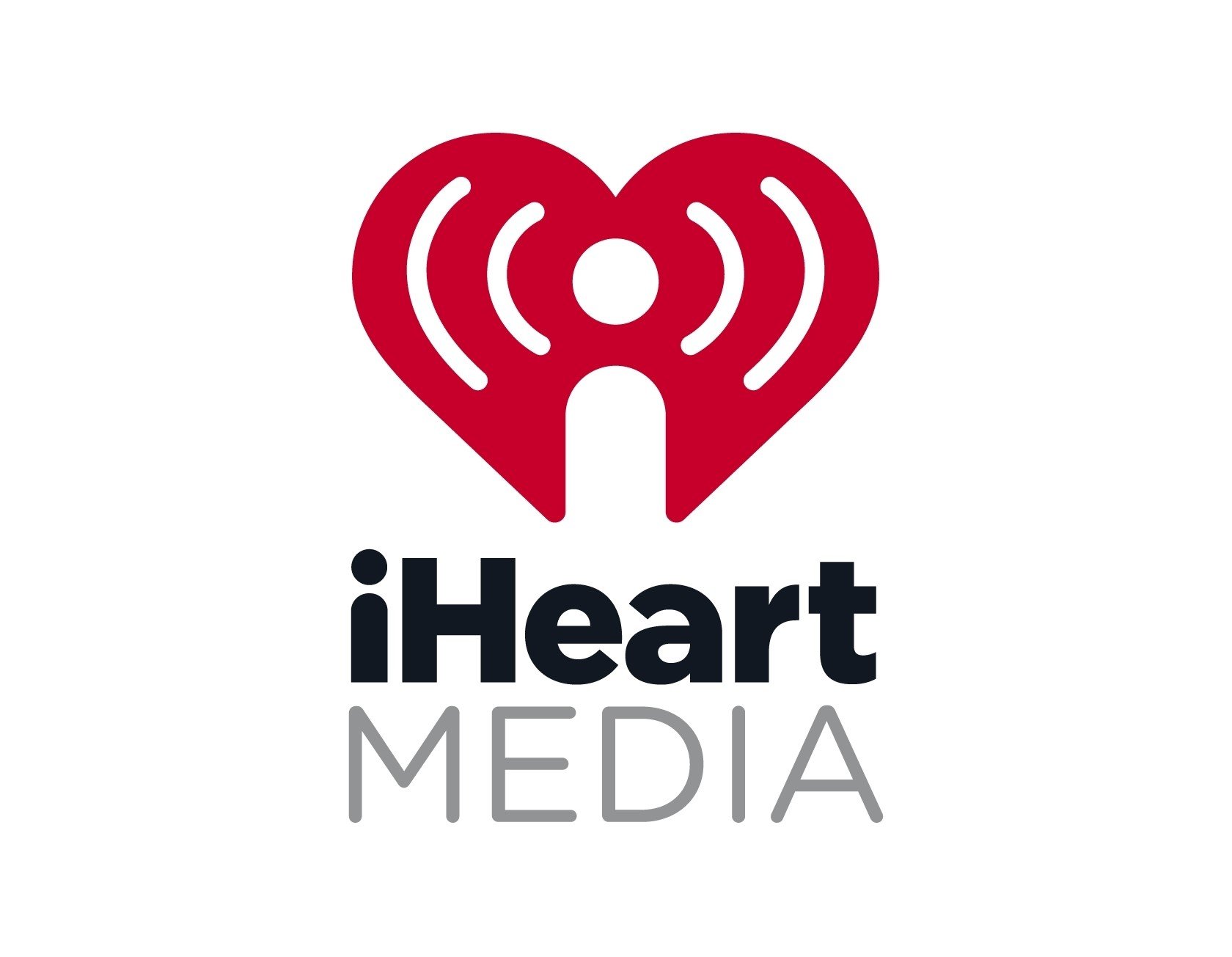Link para o artigo original: https://www.oaktreecapital.com/insights/insight-podcast/education/30-years-of-oaktree-with-howard-marks-bruce-karsh-and-sheldon-stone
In celebration of Oaktree’s 30th anniversary on April 10, 2025, cofounders Howard Marks (Co-Chairman), Bruce Karsh (Co-Chairman and Chief Investment Officer), and Sheldon Stone (Principal and Co-Portfolio Manager, High Yield Bonds) held a fireside chat for employees where they shared stories about Oaktree’s origins and the firm’s journey over the last three decades. We’re excited to share an excerpt from their conversation.
Also available at:

Harry Whitelaw
Hello, and welcome to a special Oaktree podcast. In honor of Oaktree’s 30th anniversary this April, we’re delighted to bring you an excerpt from a recent fireside chat with co-founders Howard Marks, Bruce Karsh, and Sheldon Stone, moderated by Madeleine Horton, Global Head of Human Resources. We hope you enjoy their conversation as we celebrate three decades of Oaktree.
Madeleine Horton
Hi everyone, thank you so much for joining us today for a very special fireside chat with our co-founders, Howard, Bruce, and Sheldon. I’m honored to sit here today as we reminisce about the last 30 years. I’m not going to cue Bruce Springsteen, Glory Days, because we know the best is yet to come, but I do feel like this is a bit like the podcast Acquired, where we’re going to go deep into the history of our favorite firm. But with that, we’ll get started.
Howard and Bruce, would you like to share the story of how you met?
Howard Marks
Well, sure. I think that’s a question for Bruce. But just to set the scene, as Bruce and I usually do when we make marketing calls together, we’ve been doing this for 30 years, as he puts it, I provide the…
Bruce Karsh
37 years.
Howard
37 years. I provide the play-by-play, and he provides the color. So that’s what I’ll do, and usually I’ll start off the answers and let the guys take over. But in this case, I think it’s for Bruce.
Bruce
Yeah, I should ask, because I took the initiative to meet Howard. I had this idea of creating a distressed debt fund that I’ve seen and thought about when I was working for Eli Broad at SunAmerica. And Howard and Sheldon were the best people I thought, in Los Angeles to pitch this idea to. So I called up Howard, he agreed to meet with me, we had lunch in Brentwood. I pitched the idea, he liked it. He had me meet Sheldon, and he hired me. So I was fortunate, A, that he took my call, B, that he liked my idea, and C, that he hired me.
Howard
And I remember how enthusiastic Sheldon was once he heard about it. And my reaction was, if you’ve been in high yield bonds long enough, you had plenty of experience buying bonds at $100, seeing them fall to $10 in bankruptcy, and then working out the bankruptcy and getting $30 for them. So, what I surmised from Sheldon’s reaction is, “Well, why don’t we form a fund to do this $10 to $30 part?” And obviously, it worked out great.
Bruce
The other thing to know by the way, is that at that time, Howard was a huge name in the investment management industry. That was what? 38 years ago. Everyone knew him, knew that he and Sheldon were the leaders in high yield. So, I felt very fortunate.
Madeleine
And Sheldon, do you remember how you met Howard?
Sheldon Stone
Yeah, in 1983, I was working at Prudential in private lending. I got a call from a headhunter, said that there’s an opportunity to go into the high yield bond market, and you’ve got to meet this fellow Howard Marks. We had breakfast in the city. I think early on Howard, you shared your philosophy of the importance of a balanced life. You work hard, you work smart, but you also have time to enjoy what you do personally. So, I made the move in ‘83. What I’d forgotten to ask is whether you were actually going to be in New York. You were in Beverly Hills and I was in New York. So much for due diligence.
Madeleine
Okay, we all want to know, whose idea was it to start your own firm?
Bruce
It was clearly Howard’s, although my wife Martha tells me it wasn’t really Howard, it was his wife Nancy’s idea. I’ll let Howard answer that one.
Howard
As does she. As I remember it, and I can show you the picture, the four of us, the Karsh’s and the Marks’s were having dinner at Tuscana in Brentwood in June of ‘94. And we were talking as always about, oh, we had a mutual love for Santa Barbara. And we were talking about how great Montecito is. And somebody said, “Why don’t we start our own firm in Montecito?” I think that was really the spark.
Bruce
That something was not me or Martha, it was either you or Nancy. I’ll let you fight that one out.
Howard
But at some point, the Montecito part dropped out. But the spark was set and Bruce said, “Yeah, I’m willing to think about it, but come to me on Monday with proposed economics.” He was always driving a bargain. And I did on Monday, and within a half hour we agreed to do it. And of course, Sheldon was the first person approached after that.
Madeleine
And was there a code name?
Howard
What do you think?
Bruce
I think the code name was Oaktree.
Howard
Yeah.
Bruce
What do you think, Sheldon?
Sheldon
I remember Howard saying that he wanted to use the word oak, because you had, your property in Montecito was, “The Oaks,” in Spanish. So I think we ran through oak knoll, all kinds of oaks, and we ended up with the simple tree.
Howard
But the great story that you may not be aware of is that we came up with Oaktree as the working name, code name. Then when we decided to go forward, I said, “Okay, what should we call it?” And everybody says, “Well, Oaktree obviously.” But Oaktree, O-A-K-T-R-E-E, is a typo. [00:05:30] If you look in the dictionary, it’s not there. There is no such thing as an oaktree. It’s two words, oak tree.
Bruce
But we really were off and running. At the end of year one, what were AUM at that point?
Howard
Five.
Bruce
Five. We capitalized Oaktree with $10 million, and we were cashflow positive from year one. And we were in very strong… We took root very quickly.
Howard
Surprisingly. The irony is that we didn’t have a profit plan, a budget, an expectation of how much money we’d make. Literally, we merely thought that we’ve done a good job for clients to date. If we can keep doing a good job, we’ll have a successful firm. That’s all. That was the extent.
Bruce
I had a lot of confidence though, we would continue to do well. We had a great track record on the distress side, on the high yield side, convertible side. The biggest risk factor in starting Oaktree I think was we had to start a back office and an accounting function, all these things that before when we were TCW, they did all that. And so I think employee number one was a really key hire. But in our first year, we started OCM Opportunities Fund I. David Kirchheimer was great.
But on the distress debt side, we started OCM Opportunities Fund I, and you probably remember how much it was. I’m guessing it was
Howard
400?
Bruce
670?
Howard
Was it 670?
Bruce
I think. But someone will know.
Howard
As opposed to Special Credits One, which was 65 on it first close.
Bruce
Right.
Howard
Right?
Bruce
That was 1988.
Howard
We thought that was all the money in the world.
Madeleine
We had a submitted question from an employee who asked about the thought process of crafting and creating the investment philosophy and the business principles. Can you talk a little bit more about why you think they have endured and the thought process that went into it?
Howard
Well, the five of us who started Oaktree had the enormous advantage of having at that point, worked together for an average of nine years. Sheldon joined me in ‘80, Bruce Wayne in ‘87, Larry Keele in ‘86, Rich Masson I think in ‘88. So on average in ‘96. We knew how we thought money should be run or at least how we wanted to run it, what we had done and how successful it had been.
So we thought it was important to enunciate our philosophy in writing. And so we just sat down and did it as one of the f irst acts. It was really important to us to have one set of principles that guides everybody. And interestingly, that was 30 years ago. We’ve never changed one word of the investment philosophy, and we’ve never seen the slightest reason to do so.
Madeleine
And whose idea was it to have the no-jerk policy?
Bruce
I think all of us, because back then, maybe even now, so many of your waking hours are spent with your working colleagues. And it was important for us when we were building our own firm to have fun, enjoy each other’s company. Some of the things that Howard told Sheldon, “Have a balanced life.” That was very important.
Culture was probably in the early, early days. We talked more about that than anything in terms of creating the right culture for Oaktree that we could be proud of, that would help make it an enduring institution, et cetera, et cetera.
Howard
I wrote a memo in, I think it was 2003, called The Most Important Thing, which was a precursor for the book. It said in that memo that the keys to a successful partnership is shared values and complementary skills. And I think that one of our great advantages was that all of the founders and early employees had the same values. And I think one of the values at Oaktree is that making a lot of money isn’t the only thing, or necessarily even the most important thing. But if that’s your attitude toward life, then it follows from that that it’s not worth working with jerks.
Bruce
We had a different word for it back then didn’t we?
Howard
We did.
Bruce
We won’t go there. But family, I think family was an important priority for all of us. We’re married, we’re having kids. We really thought that would be a great way to build a firm with that kind of culture. And so we encourage people to leave, go home, don’t spend weekends here, be with your families.
Howard
You read the articles about the fact that when you get your first job in investment banking, you work 200 hours a week or something. And we don’t think that’s ever been the norm here, nor should it be. But interestingly, we had an opportunity in our first decade to put this to a test. And so I think it’s been very important. We want to work with people we want to associate with, not just people who will make us the most money. That’s a really important distinction to all three of us.
Madeleine
Today, we have 24 offices globally with our newest office in Hyderabad. Sheldon, you mentioned that when you and Howard were talking, you were in New York. Was there any conversations about Oaktree being in a different city besides Los Angeles or Montecito?
Sheldon
New York for sure.
Howard
Yeah, we had New York from the very beginning. The first call I made was to Kevin Clayton, who was a young salesman over there, and he would say he became the head of marketing. That’s because he became the only.
Bruce
He said when you called him?
Howard
Oh yeah. He said, “What took you so long?” It was like within the first 10 minutes that we could. But the New York office was Kevin, which was our international convert team. Because they were there. We believe that for many people, it’s been really good to live in California. And I think living in California has been one of the things that has cemented our relationship with the California employees. But not everybody wants to, we didn’t make them.
Sheldon
I even think locating downtown reflected the fact that we didn’t want people who lived in Pasadena to say, “You really want me to make the trip to Brentwood or Santa Monica?” So we just said, “Why disrupt people’s lives?”
Madeleine
What are some of the most important lessons learned in building a business?
Howard
I wouldn’t say we’ve executed everything perfectly. But I think our basic instincts were right. And if you look at the business principles, which we also wrote down at the beginning, which were important to us… And by the way, as an aside, let me say, most firms that start up have an investment philosophy. Some of them write it down as we did. I think very few enunciate business principles. But our shared values, number one, made it possible to do so, and number two made it important to do so.
We wrote down a set of business principles, which I think were very important, which I think we basically had right. Things like communications. And having a non-hierarchical apolitical work environment was very important to us, and not having conflicts of interest with the clients was important to us. I think we have a very good set of business principles, and I don’t say it’s the only way to run a business, but it’s the place we want to work.
Bruce
I think we got culture right. I feel like we worked really hard on that in the early years, family weekends and things of that nature, and feel like we’ve got that. I’m very proud of the culture of Oaktree and hope it stays the way it is.
Howard
It’s up to all of you.
Bruce
The other thing, I just want to put ourselves back in the day. The clients back then were very, very focused on no mission creep. In other words, if you’re in a lane, they wanted you to stay in that lane. And we grew up with that mentality. The world’s changed, and now you go in all different kind of lanes and swerve around, et cetera, et cetera. But if you were in US high yield, that’s what the clients wanted, you had to deliver exactly what you said. And I think the world’s changed, the investment world’s changed.
Howard
You say the investment world changed. I’d make one change, the world has changed. When I was young, when we were young, if you think back, the world changed very little. A comic book was always a dime. Now the world changes every minute. Now we have to constantly change.
Sheldon
Yeah, let me add one point Howard, on our business principles and what we did and what we would not do. I think when the venture capital meltdown occurred, was a really important time because there was an opportunity to buy assets cheap or apparently cheap. And I remember you saying three things. What we do is, one, there has to be a degree of inefficiency, of which there clearly was. Two, we have to have the skills to do it. And three, there has to be a low risk way to pursue those returns. And I think the problem was the third one. There was no low risk way with venture.
Bruce
My recollection is Howard saying it’s a totally different mindset. We’re credit guys, we avoid strikeouts. That’s what we’re meant to do. And in the venture game, it’s all about home runs. And it’s just a whole different way of thinking and viewing the world. And so we passed on that one.
Howard
Yeah, that’s a good point.
Madeleine
And as you look to the future, to the next 30 years, what are your hopes for Oaktree?
Howard
Well, I would say more of the same in terms of culture and principles, but more evolution per what Bruce said. I think that Armen, Bob, and Todd, and all the people that work so closely with them, will do a, I dare say, better job of progressing the business than we did.
Bruce
I’ve got a lot of confidence in the new leadership too, as I think they know. We’ve worked with them for a lot of years. We know who they are, what they are. I really hope the culture doesn’t change, because I think we created something special here. I’ve heard that from a lot of people who’ve left, who’ve come here from other firms, who come back, people
Madeleine
Boomerang.
Bruce
… who work here have worked here for 5, 10, 15, 20 years who say how happy they are, and families are happy, and we’ve created a lot of nice jobs for the families. And so I hope that doesn’t change.
Howard
But this is the point in time in which I usually in the ask me anything sessions make the point, and maybe not everybody knows this, that the three of us don’t get paid. We don’t get a salary, we don’t get a bonus. The point is, we have our stock and our stock is substantial, and by making Oaktree do better, we hope to make our stock worth more. There’s no question about that. But I’m not going to work here if the culture changes, because I only work because I enjoy it.
The point is, and Bob and Armen and Todd and all the people who are in key senior management roles have been selected, not just because they’re money makers, but because in addition, we believe that they will perpetuate and strengthen the culture, and that’s so important to us.
Bruce
Besides culture, we also talked a lot about an enduring institution and building…
Howard
Well, that was Bruce’s term. Twenty-five years ago.
Bruce
And I’d like to see Oaktree continue to be an enduring institution work. I will say this. I know a lot of you like me, travel around all over the world. Howard of course does the most of it. But we’ve got a great reputation. Worldwide, people know us surprisingly. Everyone seems to know Oaktree and has a high regard for us. I give Howard a lot of credit because of who he is and what he’s done in terms of communicating, writing, speaking, et cetera, et cetera.
But it still surprises me to this day. I could travel to almost any country and the people who are reasonably financially literate know us and like us. And that’s a great thing. It’s got to be a great asset. It doesn’t show up on the balance sheet, I know that, but that’s got to be really, really valuable to have that reputation and goodwill.
Sheldon
I was just going to add one thought on enduring institution. And that is at 30 years from now, or 10 or 20, however you want to look at it, it would be wonderful to see the generational change in leadership occur internally. I couldn’t be prouder of my team. Someone I hired as a junior analyst 20 years ago has stepped up and in a very significant way, and others in the team. So if we hire the right people, we have the right reward structure and the culture that I think holds us together, it should be a very powerful period, 10, 20, 30 years.
Howard
And clearly, we don’t only promote from within. If you want to have a great organization, that would not be a good rule that we only promote from within.
Bruce
No.
Howard
But we are strongly biased toward it, and I love to look around this audience and see all the people who have moved up from within. Our tendency to hire from within and recognize the potential that exists inside Oaktree has been one of our distinguishing factors, and I hope that won’t change, balanced by augmenting it with outside talent when appropriate.
In most of our experience, Oaktree has distinguished itself in bad times. We’re good in good times, but great in bad times. There’s no reason to think that’s not going to be the pattern that continues, and I think it’s very important that it is. I think that our clients recognize that it’s not essential to be an out performer. In good times, everybody does well. The time when it’s important to be an out performer is in bad times. However, the reminder of that fact only comes sporadically, and it’s been a long time.
Bruce
The other thing I think our clients recognize is that no one takes advantage of the dislocation better than Oaktree. Now, we haven’t had any serious lengthy dislocations, but if and when we do, I have little doubt that it’ll be a great time for us.
Howard
In late ‘22, when the Financial Times of London took me to lunch to include me in their column lunch with the FT, I took them to the place in New York where I go whenever I have a business lunch near the office, and I said to the writer, “Eating in this restaurant is like investing at Oaktree.” This was not pre-planned, but I said, “Always good, sometimes great, never terrible.” And I think that’s who we are.
I want to say that working with Bruce and Sheldon and working with all of you and working at Oaktree is one of the very most important aspects of my life. After Nancy and the kids and the grandchildren, what else is more important? What else is more fulfilling? What else has played a bigger role in my life? It’s a great thing. My goal, and Nancy would give me a jab if I said this, but my goal is 30 more. What could be better? In terms of a place to work, it couldn’t get better.
Bruce
My final word, Howard always says it best.
Howard
Thank you all for being here today with us on the 30th anniversary and for being part of this great voyage.





